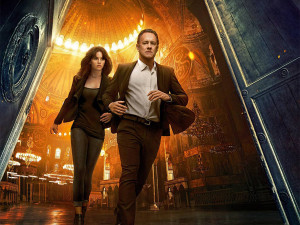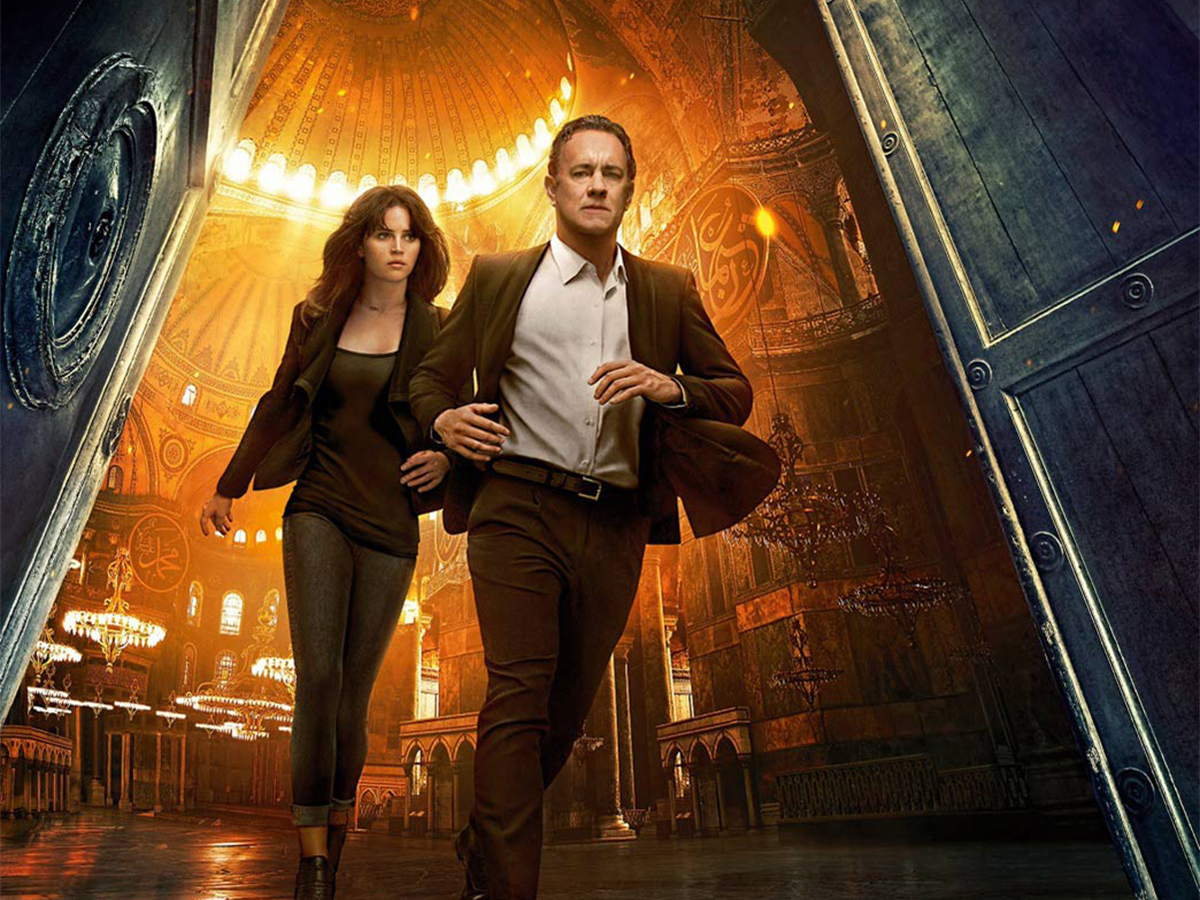
Some say the third time’s a charm, but in this case, Ron Howard’s third attempt in readapting a Dan Brown novel bursts into flames once again. “Inferno” delivers an unmemorable and inexplicable storyline with nauseating camerawork and incoherent scenes, making the film appear scattered and difficult to immerse in. This story was meant to be a race against time instilled with a sense of suspense and urgency, but instead, the audience received a tedious goose chase filled with unconvincing exposition and a lack of shocking moments.
Tom Hanks reprises his role as Robert Langdon, Harvard symbologist and professor, who awakens in a Florence hospital room with amnesia. Suffering from head trauma as well, he has flashing visions of an apocalyptic world that unnecessarily and frequently flash onto the screen, making it a nightmare to watch if one has epilepsy or a faint heart. As Langdon and the doctor who is treating him, Sienna Brooks, team up in pursuit of obscure yet conveniently placed clues, they must find and displace a lethal virus created by a bioengineer lunatic whose purpose is to eradicate overpopulation. From then on, it turns into a long scavenger hunt with a nonstop run from the bad guys, which isn’t as exciting or impressive as it seems.
Rather than offering compelling storytelling, the film starts off painstakingly slow since the audience becomes as damagingly confused as the dazed protagonist. The shaky camera angles attempt to show many nauseating effects in Langdon’s panicked, bleary point of view, but they only made those opening scenes feel choppy and extraneous. The movie picks up speed for one brief moment as the climax gratuitously and abruptly approaches; however, it is not resolved because the film digresses to a plodding pace again, forcing the audience to swallow in more backstories and plot twist explanations. Speaking of which, the dialogue between the characters was also quite sparkless and almost emotionless as if the misfortune of the virus had already spread to the actors’ expressions. Don’t get me wrong, I adore Hanks and Irrfan Khan (who plays leader of the Consortium); but the cast probably tried their best to work with a screenplay that just seemed to fall flat on the big screen. Thusly, the flame for the turning point of the story died out and extinguished any impacting or gasp-worthy resolution.
Near the end, I started to secretly hope for the fallout of a deadly virus which could potentially entertain the plotline; but instead, I realized that the movie’s breathtaking backdrop of Italy and Turkey were too picturesque to soil with corpses and a contagious plague. But, no really, one great thing is that the sceneries and artworks showcased in this film were wonderful distractions from the failing execution of the plot. The film was replete with appreciation for art history and memorable visuals and edifices, such as Dante’s portrayal of inferno in his “Divine Comedy” and the antique structure of St. Mark’s Basilica. The settings were eye-pleasers, but, alas, aerial shots of landscapes and intricate masterpieces could not glaze the film with an anticipating yet steady buildup to a consequential plot.
The major flaw of “Inferno” is that it didn’t seem like a passion project; in fact, it felt like just another lackluster blockbuster to profit from, so it didn’t come out with much integrity and commitment. There wasn’t really a need to continue this franchise due to poor reviews of the last two films, but, nonetheless, “Inferno” became a meal ticket while lacking zeal and suspense of a mystery-adventure movie. From this, I can infer no burning desire from potential spectators who would sit through hell watching this film.
Rating: 4/10








